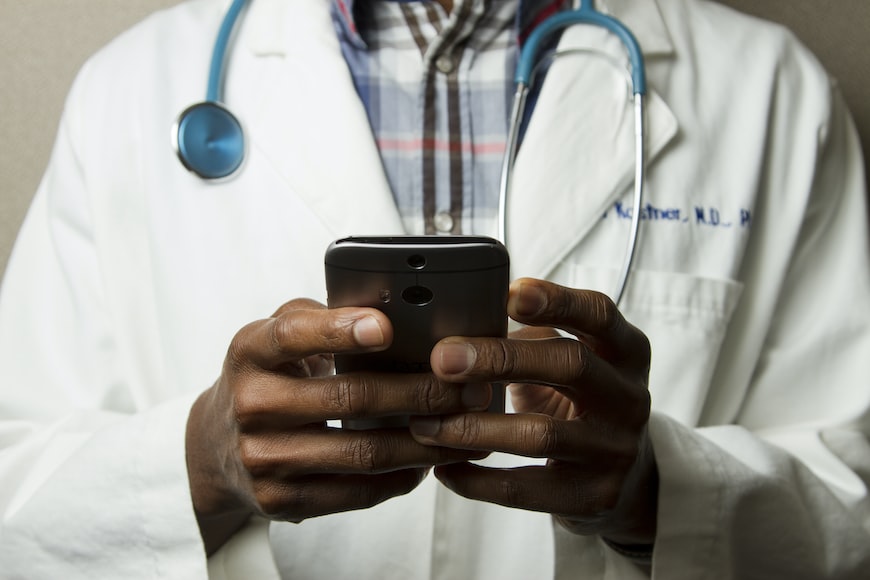
In recent years, there has been a significant shift towards home-based healthcare, driven by the desire for personalized care, cost-effectiveness, and the increasing prevalence of chronic conditions.
As the demand for home care services continues to rise, technology is playing a pivotal role in revolutionizing the way patients receive care in the comfort of their own homes.
The Vital Role of Technology in Transforming Patient Care
In the ever-evolving landscape of healthcare, technology stands as a catalyst for transformative change, revolutionizing the way patient care is delivered and experienced.
Let’s explore the indispensable role of technology in transforming patient care, from remote monitoring and telemedicine to artificial intelligence and personalized medicine.
Remote Monitoring and Telehealth
One of the most significant advancements in healthcare technology is the rise of remote monitoring and telehealth solutions. These platforms allow healthcare providers to remotely monitor patients' vital signs, symptoms, and health metrics in real-time, enabling early detection of health issues and timely interventions.
Telehealth consultations also provide patients with convenient access to medical care from the comfort of their homes, eliminating the need for in-person visits and reducing barriers to care, particularly for patients in rural or underserved areas.
Electronic Health Records (EHRs)
Electronic health records (EHRs) have transformed the way patient information is stored, accessed, and shared across healthcare settings. EHR systems streamline administrative tasks, such as scheduling appointments, managing billing and insurance claims, and maintaining comprehensive patient records.
EHRs ensure continuity of care, reduce medical errors, and improve communication and collaboration among care teams.
Artificial Intelligence (AI) and Machine Learning
Artificial intelligence (AI) and machine learning algorithms are revolutionizing healthcare by analyzing vast amounts of data to identify patterns, predict outcomes, and personalize treatment plans. AI-powered diagnostic tools can assist healthcare providers in interpreting medical images, such as X-rays and MRIs, and detecting abnormalities or anomalies with greater accuracy and efficiency.
Machine learning algorithms can also analyze electronic health records, genetic data, and other clinical data to identify trends, risk factors, and potential interventions, leading to more precise diagnoses and treatment recommendations.
Wearable Technology and Remote Monitoring Devices
Wearable technology, such as fitness trackers, smartwatches, and medical-grade wearable devices, allows patients to monitor their health metrics and activity levels in real-time. These devices can track vital signs, such as heart rate, blood pressure, and oxygen saturation, as well as provide alerts and notifications for potential health concerns.
Wearable technology empowers patients to take a proactive approach to their health and well-being, thus aids the early detection of health issues, encourages healthy behaviors, and promotes self-management and adherence to treatment plans.
Personalized Medicine and Genomics
Advancements in genomics and personalized medicine are ushering in a new era of healthcare, where treatments are tailored to individual patients based on their unique genetic makeup, lifestyle factors, and medical history. Genomic sequencing technologies enable healthcare providers to identify genetic variations and mutations associated with certain diseases or conditions, allowing for more precise diagnoses and targeted therapies.
Personalized medicine also encompasses pharmacogenomics, which analyzes how a patient's genetic profile may influence their response to medications, leading to more effective and personalized treatment regimens.
Virtual Reality (VR) and Augmented Reality (AR)
Virtual reality (VR) and augmented reality (AR) technologies are being increasingly used in healthcare for patient education, training, and therapeutic purposes. VR simulations can provide immersive experiences for medical training and education, allowing healthcare professionals to practice complex procedures and scenarios in a realistic and risk-free environment.
AR applications can enhance surgical navigation, medical imaging, and patient education by overlaying digital information and visualizations onto the real-world environment, which improves accuracy, efficiency, and patient understanding.
Blockchain and Data Security
Blockchain technology offers secure and decentralized solutions for storing, sharing, and protecting sensitive healthcare data, such as patient records, medical images, and billing information. Thanks to blockchain's cryptographic principles and distributed ledger technology, healthcare organizations can ensure data integrity, privacy, and security, reducing the risk of data breaches, unauthorized access, and tampering.
Blockchain also facilitates interoperability and data exchange among different healthcare providers and systems, enabling seamless sharing of patient information while maintaining patient privacy and confidentiality.
The Rise of Home Care
With an aging population, increased healthcare costs, and advancements in medical technology, home care has emerged as a preferred alternative to traditional hospital or nursing home care.
This is where Always Best Care In-Home Care Solutions comes in to help. Thanks to their compassionate and caring team, you can rest assured that no matter how busy you are, your loved one’s well-being is in good hands.
The Benefits of Home Care
Home care offers an array of medical and non-medical support within the comfort of one's own home and it has numerous advantages over traditional hospital or nursing home care.
Patients can also engage in a plethora of fun activities and learn how to draw a dog or their own cat, learn to paint, knit and anything else that makes them feel grounded and happy.
In conclusion, technology plays a vital and indispensable role. With the help of the wide range of innovative solutions such as remote monitoring, AI-driven diagnostics, personalized medicine, and blockchain technology, healthcare providers can deliver more efficient, effective, and patient-centered care, ultimately improving the health and well-being of individuals and communities worldwide.
As technology continues to evolve and innovate, the future of healthcare holds tremendous promise for shaping a healthier, more connected world.
